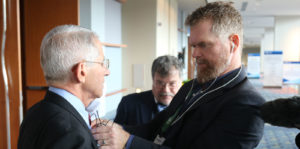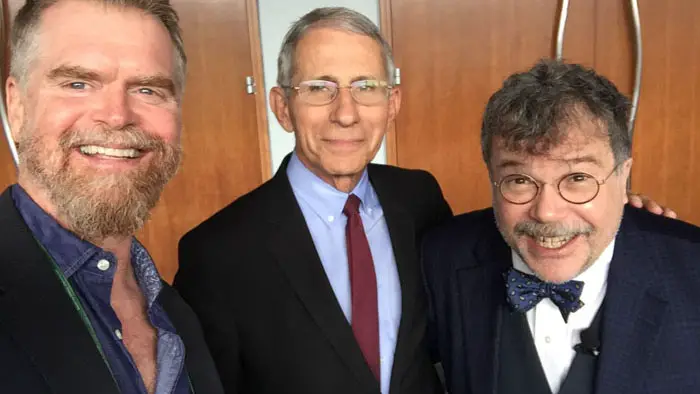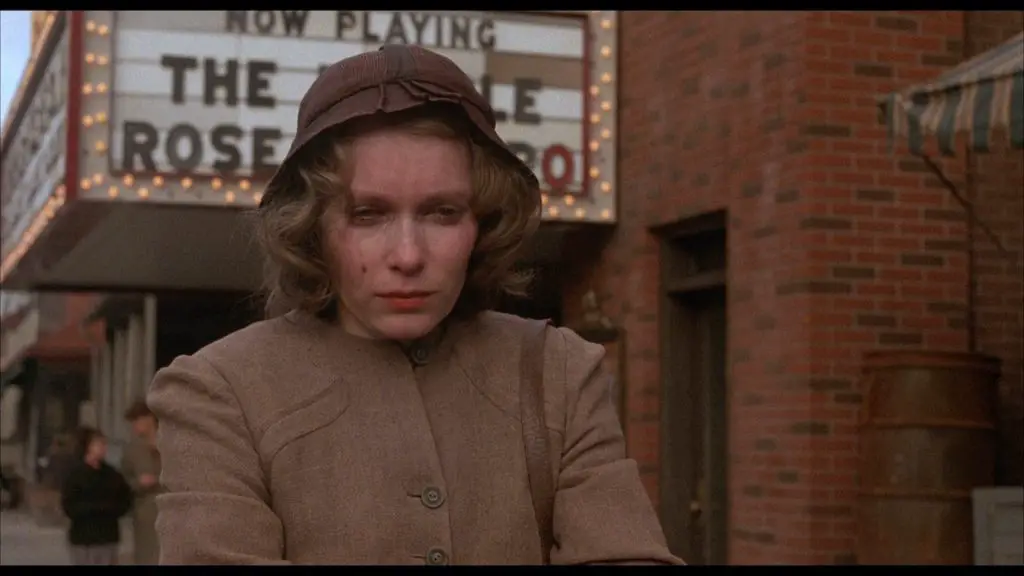
I asked how we get more members of society to fulfill the social contract, and Neil laughingly said to “get them to see the film!” Scott said it was a wonderful historian named Yuval Harari who introduced him to the fact that storytelling, from a historical point of view, is the greatest tool we have to help convince ourselves of how to make the best decisions for all of us. “It’s through stories that we make better decisions. I’m honored to be a storyteller. And to see what this film has done in a theater, bringing people together” of all different backgrounds, politically and socially. Scott continues, “Just come and see a film and take this journey of what a story can do, and be informed, and be moved, and be triggered again from the trauma that we all lived through. And laugh and cry together, and then hopefully, through that experience, you can come and have a conversation about where we agree more than where we disagree. He says that, of course, we want to believe in the social contract, how we don’t throw trash in our neighborhoods, how we don’t drink and drive, how we get vaccines not to just benefit ourselves but to benefit the entire community and the entire world. Neil chimed in, “Especially for those who cannot take vaccines medically, we need to protect them by not having a disease transmitted to them.” Scott says that is the measure of a successful society, not just how we treat ourselves, but the most fragile.
Neil interjected that storytelling was a way for us to carry information from generation to generation (especially before writing was invented), but that storytelling can give misinformation as well. It is not inherently good but is inherently effective at getting your attention. Kids who are otherwise bouncing off the walls are rapt during story time. Nazi Germany was propaganda storytelling. Scott says again that we must check ourselves, “Don’t just listen to Scott and Neil saying that this film is valid. You can see the film for yourself. Check to see how we did on the science validity and respect for the human condition. Skepticism is very healthy, but cynicism is very dangerous in a time where people embrace it and think it’s cool to be cynical, which is very dangerous.”

“…don’t just listen to Scott and Neil saying that this film is valid. You can see the film for yourself.”
We get to see in A Shot in the Arm how the strain of the healthcare system was affecting nurse Blima Marcus during the pandemic and Scott’s own family, so I asked if we’re still dealing with the psychological effects of the lockdown. Scott replied, “Without question.” Scott and Neil are happy that the film is coming out with some distance to the toughest times of what we lived through. Scott shared a humble brag story about his daughter. He asked her if there was anything that her mom or dad could have done differently during lockdown to make it easier for her, and she paused, looked at him, and said, “Shouldn’t I be asking you the same thing?” The point of the story is that humanity should be looking out for each other.
I asked Neil what the chances are that we would see another pandemic during our lifetime, and he did not seem concerned because we are getting so good at creating vaccines. The turnaround time will only get better. We are at risk for other outbreaks, but the consequences are less than anything we’ve previously encountered. He hopes that people will be a little more enlightened the next time around.
There’s a quote in the film from Dr. Paul Offit about the biggest problem of the success of vaccines being that you can’t see the effects. I asked Neil and Scott how do we spread the word about the success of vaccines to skeptics. Neil laughingly said, “That’s why we’re talking to you!” Scott replied, “I’m going to be a politician and ignore the part where you said aside from this film.”
Whether you’re a skeptic or a believer in the power of vaccines, go see this film for yourself. It’s a powerful and raw look at an issue that could not be timelier. Visit their site to find out where to watch it. You can also watch the full interview on YouTube here, where we talk about legends such as Scooby-Doo and filmmaker Roger Corman. You can also read fellow writer Sabina Dana Plasse’s fantastic review of the documentary here on Film Threat.


This sure didn’t age well
[…] Disclaimer: This story is auto-aggregated by a computer program and has not been created or edited by filmibee.Publisher: Source link […]